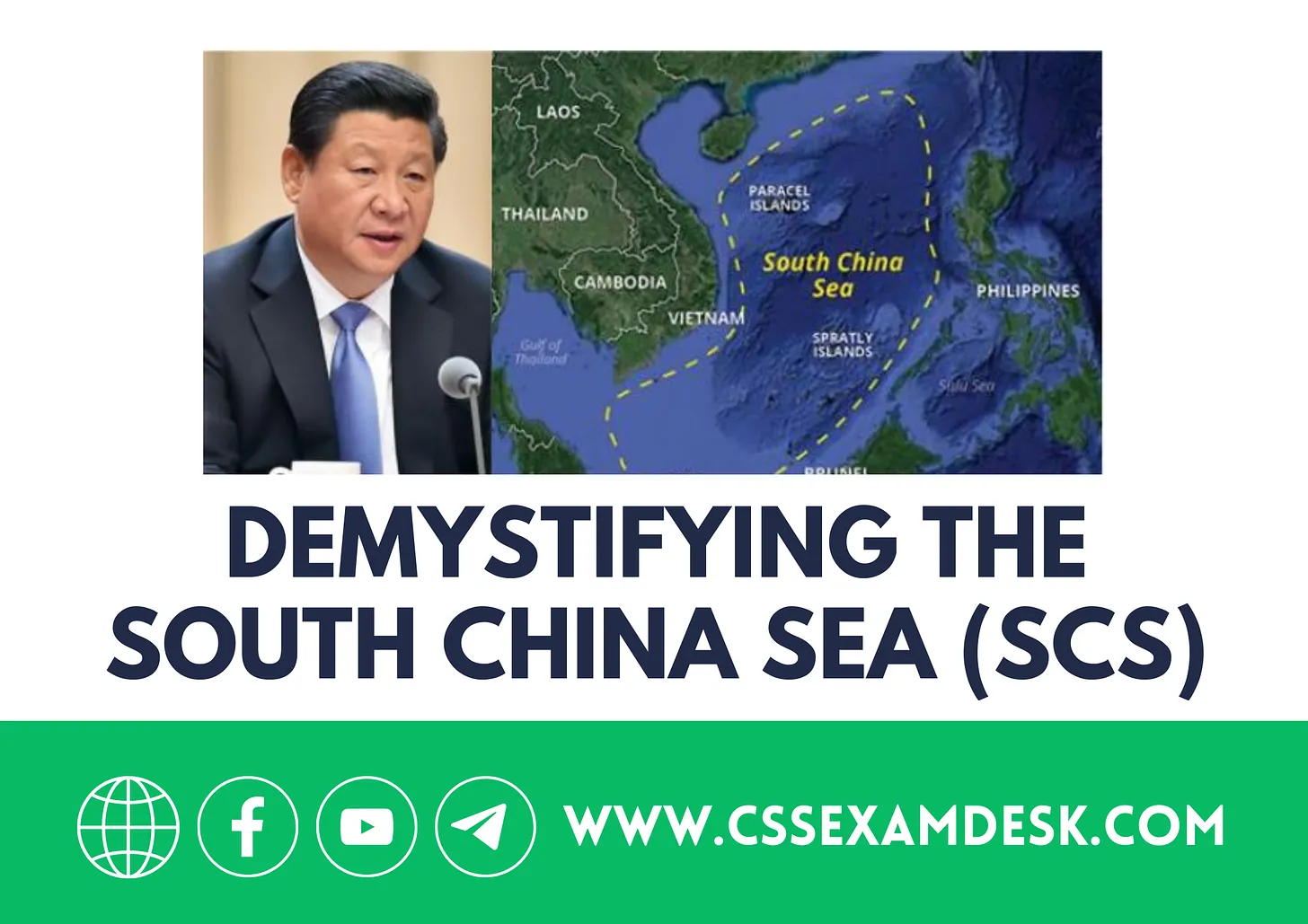Demystifying the South China Sea (SCS)
What does the U.S have to do with the South China Sea? As a crucial conduit for maritime trade, the South China Sea has attracted a lot of attention from the United States. Initially, U.S. intervention in the region was motivated by the Cold War, however, in the wake of the cessation of the Cold War, American interest in the region re-ignited because of its involvement in energy exploration with several regional countries. This interest has been threatened by Chinese expansionism. Several encounters between the U.S. and Chinese warships occurred in 2009, culminating in a standoff between the USNS Impeccable and five Chinese vessels. This growing antagonism between the two countries has also provided ASEAN ample opportunity to restructure its cooperation, thereby significantly hampering Chinese expansionism.
In 2018, the U.S. flew bombers into the region as a show of force. During the same time, the U.S. Navy and Japanese Maritime Self Defence Forces also conducted drills. Within Japan, the U.S. maintains a large number of military bases with defence facilities. On January 24, two U.S. aircraft carriers was reported in the South China Sea while China flew 39 aircraft near Taiwan. Admiral John C. Aquilino, the commander of U.S. Indo-Pacific Command, recently shared in an interview, “Over the past 20 years we’ve witnessed the largest military buildup since World War Two by [China]. They have advanced all their capabilities and that build-up of weaponization is destabilizing to the region.” Another recent statement released by the U.S. Navy stated that, “the U.S. forces have been operating on a daily basis in the South China Sea as they have been for more than a century.” It is highly unlikely that the United States will abandon the South China Sea.
The United States is fostering allies in the Pacific, entering into military ties with Taiwan, South Korea and Philippines while China is providing an alternate economic exchange system to countries like Iran and Pakistan through OBOR and CPEC.
Ensuring China retreat from South China Sea?
- On the economic front, many developed countries based MNCs have started shifting their labour-intensive manufacturing bases -the backbone of Chinese Economic growth- to other countries in South Asia as well as have started outsourcing as much as possible the supply chain from other countries. The German-led European Union(EU)’s Comprehensive Investment Agreement(CIA) with China negotiated and concluded -after seven years and 35 rounds of negotiations’ no-progress- in December 2020 has been suspended by EU Lawmakers. Apart from the above, the trade war that started during the US President Donald Trump administration between two leading world economies having a tremendous negative impact on export-oriented China Economy had been so far retained by his successor Joe Biden who took an oath of office in January 2021.
- On the military front, Quadrilateral Security Dialogue(QUAD) member countries (US, India, Japan and Australia) have started regular naval exercises involving their aircraft carriers, frigates and destroyers in the Indo-Pacific in order to build strategic skills of interoperability despite oblique criticism from China and her present opaque ally Russia. Apart from the above, the US warships have been on regular crisscrossing the contested sea and visiting SCS’s littoral countries and doing port calls. After moving through SCS, a British nuclear-powered submarine accompanying the HMS Queen Elizabeth aircraft carrier has made a port-call to Busan in South Korea. And on August 02, the German navy frigate “Bayern” set sail for the Indo-Pacific. The first such deployment in almost 20 years is meant to uphold Freedom of Navigation(FONOP) in international waters, protect “open societies” and express support for regional partners sharing Germany’s values, DM Annegret Kramp-Karrenbauer said in a statement.
- On diplomatic front, Japan PM called Taiwan a ‘country’ instead of ‘region’, breaking an ongoing practice which has been there since Tokyo cut off diplomatic relation with Taiwan in 1972, and an annual Japanese defense white paper in mid-July 2021 calls Taiwan important to domestic and international security for the first time, and it adds that “it is necessary that [Japan] pay close attention to the situation with a sense of crisis more than ever before.” The presence of Taiwan’s de facto ambassador in Joe Biden-Kamala Harris oath taking sends a strong diplomatic signal to belligerent Xi Jinping.
